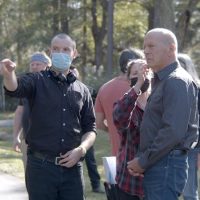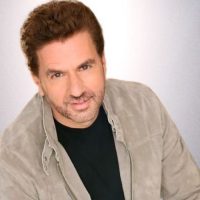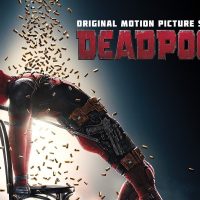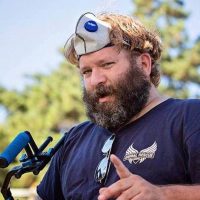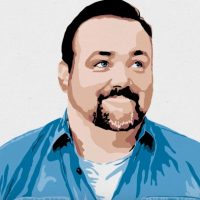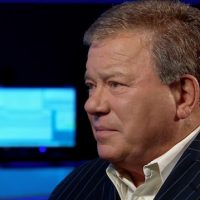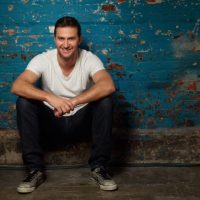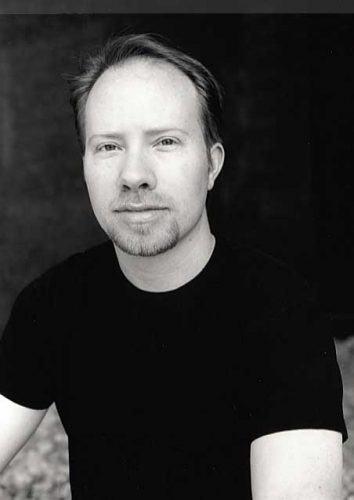 LOS ANGELES - From video games to epic Hollywood movies, Bill has composed thrilling soundtracks and scores for global audiences. He has created music for directors and producers including Steven Spielberg and DreamWorks Interactive ("The Lost World: Trespasser"), Oliver Stone ("Any Given Sunday") and also the hit TV series CSI :NY.
LOS ANGELES - From video games to epic Hollywood movies, Bill has composed thrilling soundtracks and scores for global audiences. He has created music for directors and producers including Steven Spielberg and DreamWorks Interactive ("The Lost World: Trespasser"), Oliver Stone ("Any Given Sunday") and also the hit TV series CSI :NY.
Interview with Bill Brown
Iain: How did you get your first break as a composer?
Bill: It has been my dream to compose music for films since hearing the work of John Williams, Jerry Goldsmith and John Barry (etc. etc.) when I was a teenager. There have already been a bunch of first breaks in my career connecting the dots. But essentially, each positive thing that has happened has been through a friendship. If I traced it all the way back to my days at Berklee those college friendships helped me. When I first moved to LA, a friend introduced me to a friend and before I knew it, I was scoring video games which I didn't know I would be doing up to that point. (I'm now up to somewhere around 50 triple-A titles I think). Then I met a director doing a Budweiser commercial on spec back in the 90s, and a few years later he asked me to do the music for a film, and then a few years after that, he asked me to come meet with the show runner for CSI:NY.. and before I knew it, I was the composer for CSI:NY.. I had no idea I would be doing any of these things, and certainly didn't see them coming.
Iain: What was the first movie you ever scored?
Bill: The first film I worked on was a wonderful short film directed by Jim Sonzero (dir. Pulse called 'The War Of The Angels'.)
Iain: Can you tell us what the process is like for developing a completely original score?
Bill: I create original themes and textures for every episode of CSI:NY and because it's television, I only have a few days to go from blank page to completed score, so I really have to go with my gut reaction to the material, along with the conversations I have with the producers and writers. Working on a film is an expanded version of the same thing in essence, where I usually have a little more time to start from that initial inspiration, the internal or soulful reaction to the material, and then really hone and craft it like an architect or a painter does. There is an essence of the score, a theme or a series of themes (the elements) and the arc of those elements across the work (the structure / shape of the score) and finally the decisions on orchestration color (instrumentation, solo musicians, electronic elements, etc..) and recording (the space, dynamics, how the instruments will be presented in the final dub). All of these things are direct reflections of the film and the film's needs. The tempo and feel of the score are driven primarily by what is on the screen, and the soul of it comes from somewhere underneath the action, inside the action.
Iain: What level of involvement do you have with films and how do you work with producers/directors?
Bill: My recent experience scoring The Devil's Tomb (dir. Jason Connery, starring Cuba Gooding Jr.) was just fantastic. The collaboration was effortless. One of my favorite things is hanging out with the director and the producers and really digging into the essence of the project, sharing ideas taking everything to the next level through the music. I always listen carefully to what it is they are going for in a scene, or in the arc of the film and strive to fully understand their vision and then bring that into the music. We talk about the emotion, not in musical terms, but in terms that the director is comfortable with; dramatic terms. The same way they would discuss the scene with an actor, or a cinematographer. The more I understand their vision, and the more connected I am with them, the better the result. Sometimes it means going back into a cue or a sequence to bring some specific thing out musically we hadn't discussed. Magic happens when we can focus in together and really get to the essence of things and understand what moves us about it. Creating the score for a film needs to be both personal and collaborative.. that is the essence of film, we share something of our soul. We have been collectively inspired by the work and by each other. Being a part of that is why I love film, almost as much as standing on a scoring stage and hearing the music pour out of an orchestra these are gifts that really cannot be quantified in words.
Iain: What can you say has helped you have a successful career?
Bil: I think career for anyone is about relationships, and about creating opportunities through the quality of work you do. I honor my friendships, and I always do my best work. I put my heart and soul into it all, and I think that is what makes the difference. I'm excited to see what my next first break will be.
Iain: If you could choose, whom would you work with in the future?
Bill: I've been a big fan of David Fincher over the years and would love to work with him.
Iain: Do you have any future projects we should know about?
I'm currently looking for film projects for 2010.. You can find me on facebook, or through my manager at First Artists Randy Gerston (contact info is on my site)!
To find out more about Bill's work: http://www.billbrownmusic.com














